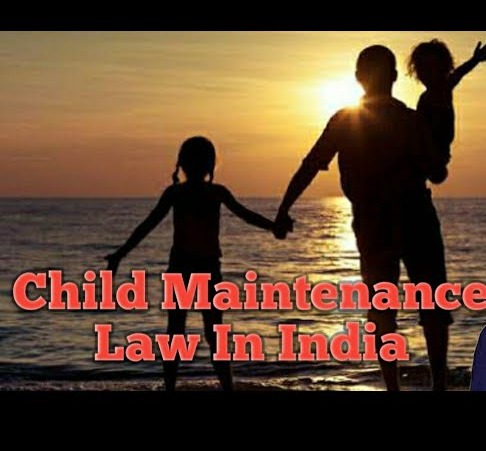1. This is an application in revision by the defendants arising out of a suit brought on an instalment bond for Rs. 5,000 payable in 10 years. The bond contained a provision that half-yearly instalments of Rs. 250 would to paid and on default of payment of any two instalments, the whole amount would become payable, and the creditors would be at liberty to sue for the entire amount. Defaults were made for 5 instalments, and a suit for recovery of these instalments, was filed in 1933. In the plaint the creditors expressly mentioned that they were abandoning their right to recover the whole amount in a lump sum, and that in future they would sue for the future instalments as they fell due. This suit was decreed. Later on they brought another suit for recovery of one further instalment when it fell due, and it was ultimately withdrawn on condition of the plaintiff''s paying the costs of the defendants. The plaint was returned to the plaintiffs, although they had not deposited the defendants'' costs in the Court. They then brought the present suit in November 1933, for the recovery of that particular instalment. The defendants resisted the claim on two principal grounds. The first was that the present claim was barred by Order II, Rule 2, inasmuch as in the first suit the claim for this instalment had not been included. The second plea was that the condition under which permission to withdraw the suit was granted had not been fulfilled inasmuch as the costs had not been paid to the defendants before the institution of the suit. Both these contentions have been repelled by the Court below and the claim has been decreed.
2. So far as the question whether the plaintiffs have or have not failed to comply with the condition under which permission was granted, is concerned, we are of the opinion that this is a mere matter of interpretation of the order passed by the original Court, and we should not interfere in revision. The lower Court has taken into consideration the fact that the learned Munsif, who had passed the conditional order, allowed the plaint to be withdrawn, and that the order did not clearly and expressly mention that the costs must be deposited before the fresh suit is filed. In view of these considerations, he has come to the conclusion that the payment of the costs was not a condition precedent to the institution of the suit. We would not interfere with the decree of the Court below on the ground of interpretation only.
3. The principal point for consideration is whether the present claim is barred by Order II, Rule 2, Civil Procedure Code. In order to avoid multiplicity of suits the rule quoted above provides that every suit shall include the whole of the claim which the plaintiff is entitled to make in respect of the cause of action, and that where a plaintiff omits to sue in respect of or intentionally relinquishes any portion of his claim, he shall not afterwards sue in respect of the portion so omitted or relinquished.
4. The Court below has interpreted the instalment bond as giving an option to the creditors either to sue for the whole amount in case of two successive defaults or to sue for instalments only. In the case of
5. The learned Advocate for the applicants strongly contends before us that inasmuch as the creditors were entitled to sue for the whole amount, the mere fact that they chose not to sue for the whole amount but sued for some instalments only, would not take them out of the scope of Order II, Rule 2. This argument necessarily implies that there is no real option to a creditor at all. He must either sue for the whole amount or at his peril sue for instalments only. If he sues for the instalments only then his further claim for the whole amount would be barred by Order II, Rule 2. This would amount to nullify the option given to him under the deed. As a'' matter of fact, Order II, Rule 2, does not deal with cases where there is an option to sue for the whole amount and the option is waived before the suit is brought. It seems to us that where a creditor has an option either to sue for the whole amount or to sue for the instalments only and he exercises his option of suing for the instalments only and waives the right to sue for the whole amount, there is no longer any cause of action left to him for suing for the whole amount. It follows that at the time when the suit is brought, he disentitles himself from suing for the whole amount, and therefore Order II, Rule 2, would not be a bar to a future claim brought by him when further instalments fall due.
6. Great reliance has been placed by the learned Advocate for the applicants on two cases decided by their Lordships of the Privy Council, which, however, are both easily distinguishable. In Muhammad Hafiz v. Mirza Muhammad Zakariya 44 A 121 : 65 Ind. Cas. 79 : AIR 1922 P.C. 23 : 49 I.A. 9 : 20 A.L.J. 17 : 26 C.W.N. 297 : (1922) M.W.N. 89 : 35 C.L.J. 126 : 42 M.L.J. 248 : 15 L.W. 377 : 24 Bom. LR 341 : 30 M.L.T. 224 : 3 P.L.T. 279 : 31 P.W.R. 1922 , a suit was brought to realise the amount of interest due on a mortgage-deed after the term of the mortgage had actually expired. It was accordingly held by their Lordships of the Privy Council that a subsequent suit to recover the principal amount of the mortgage money was barred by Order II, Rule 2. Under the deed, there was a right to recover the whole amount if interest was not paid for six months, and there was also a right to recover the whole amount when the term of three yearn fixed for the mortgage-deed expired. After the expiry of three years there was no longer any option left in the mortgagee to sue for one part of the amount and wait for the other. The whole cause of action had accrued. Their Lordships accordingly held that there was only one cause of action, which gave occasion for, and formed the foundation of the suit and which enabled him to ask for the whole relief at once.
7. Similarly in Kishen Narayan v. Pala Mal 4 Lah. 32 : 72 Ind. Cas. 187 : AIR 1922 P.C. 412 : 50 I.A. 115 : 44 M.L.J. 123 : 25 Bom L.R. 220 : 32 M.L.T. 41 : 27 C.W.N. 802 : 18 L.W. 341 : 50 C 126 : 6 P.W.R. 1923 : 9 O & A.L.R. 488 , the mortgage-deed had provided that the whole amount would be recoverable if there was only default in the payment of interest for six months as well as when the full period of two years expired. A suit was brought for the recovery of the interest that had fallen due after the expiry of the terms fixed in the mortgage-deed and was decreed. A subsequent suit to recover the balance was held to be barred by Order II, Rule 2. Here too, the whole cause of action had arisen, and there was no question of any option in the mortgagee to sue for part or for whole, and therefore no question of any waiver arose. As already pointed out, where there is an option, which can be exercised one way or the other, and the creditor chooses to exercise it in one way, he must be deemed to have waived his right to exercise it in the other way, and therefore the cause of action that accrues to him is only to exercise his remedy in the way that he has chosen.
8. As regards the case of
9. We are, therefore, of the opinion that the view taken by the Court below that the present claim is not barred by the provisions of Order II, Rule 2, Civil Procedure Code, is correct. The revision is accordingly dismissed with costs.

